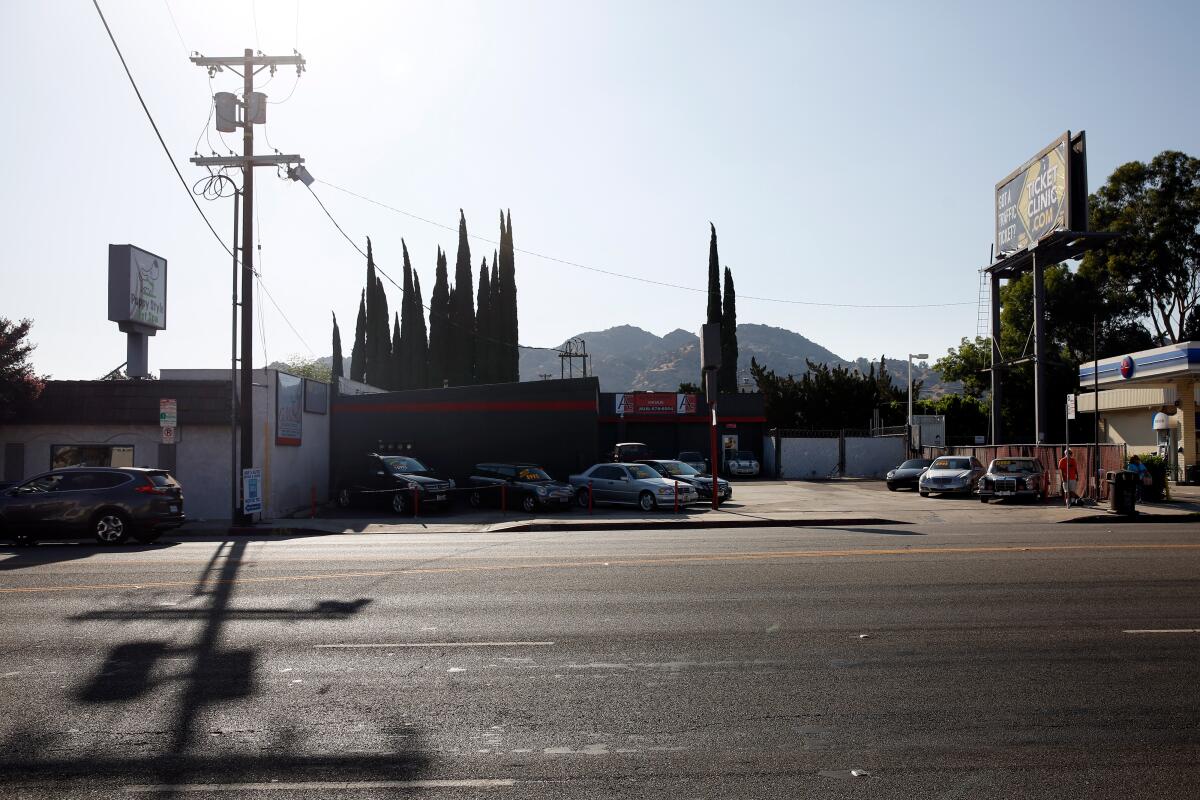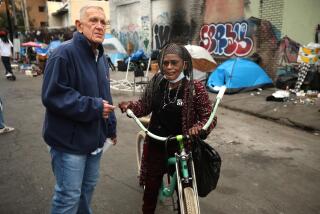Editorial: Are L.A. leaders serious about homeless housing?

On the same day that U.S. District Judge David O. Carter issued an order lambasting L.A.’s political leaders for failing to treat homelessness like the humanitarian crisis it is, Councilman John Lee moved to kill one of the few homeless housing projects in his affluent North San Fernando Valley district.
The timing was a coincidence, but the message was clear: At least some of Los Angeles’ political leaders are paying lip service to solving the homeless crisis.
Lee wants to claw back more than $7 million in homeless housing funds allocated to help build a 55-unit supportive housing project on a vacant car lot in Chatsworth. The money comes from Proposition HHH, the $1.2-billion bond measure approved by voters in 2016.
Lee was never a fan of the Chatsworth project, which neighbors blasted as too big and too close to a school. Still, he voted to approve the funding in October 2019. It was the first HHH project OKd for his council district, which has lagged way behind all other regions of the city in building its fair share of homeless housing.
The developer, San Diego-based Affirmed Housing, has also raised $7 million from the state’s veterans housing program. (About half of the units will be reserved for homeless veterans.) The project has received city permits and is slated to break ground later this year.
So why yank the money now? Lee complains that HHH projects are too expensive and are taking too long to build. He wants to rescind the funding and give it to “an innovative project proposal” that can be built faster and more cheaply.
Good luck getting all $7 million back. The City Council greenlighted the project, and the developer would rightly sue the city for breaking that agreement.
Beyond that, it’s galling that Lee would prioritize speed and cost now. He pushed Affirmed Housing to shrink the project from 64 units to 55, which boosted the cost of construction to about $545,000 per unit — an increase of roughly $100,000 per unit. (The city is still contributing just $140,000 per unit in HHH dollars.)
And this development is just months away from construction. Does Lee really think an entirely new permanent supportive housing project could line up complex layers of public and private financing, navigate city approvals and open any sooner?
Lee’s arguments are a fig leaf. He’s bending to community opposition to homeless housing. That kind of obstruction is exactly why Los Angeles has failed to build enough homeless housing and why the city has practically invited Judge Carter’s sweeping intervention.
The real question is whether the City Council and Mayor Eric Garcetti will go along with Lee’s scheme or nip it in the bud.
The unwritten rule in L.A. is that each council district is a fiefdom in which its council member alone gets to decide whether a project gets built or blocked. But that questionable practice should be trumped by the 2018 pledge — championed by City Council President Nury Martinez — that every council member back the approval of least 222 units of supportive housing in his or her district before July 1, 2020.
Lee’s Council District 12 never even came close, with just one bit of new HHH construction approved: the 55 units he now wants to rescind. His district has recently seen a motel transformed into interim housing thanks to state Project Homekey funding. There are plans for a shelter and a 100-unit supportive housing complex, which has yet to be approved. That’s an improvement, but Lee’s district is still woefully behind in providing safe, humane housing for homeless Angelenos.
There’s good reason for Martinez, Garcetti and city leaders to publicly dismiss Lee’s effort. If the city begins to renege on its HHH funding commitments — particularly when the developer is meeting its obligations — that will set a troubling precedent and could scare affordable housing developers away from L.A. It will also mark the city as an unreliable partner to the public and private investors who play an essential role in funding much-needed housing for homeless and low-income residents.
And for what? So a councilman can score points with a small group of homeowners? Homelessness is a humanitarian crisis. We don’t have time for political games.
More to Read
A cure for the common opinion
Get thought-provoking perspectives with our weekly newsletter.
You may occasionally receive promotional content from the Los Angeles Times.










